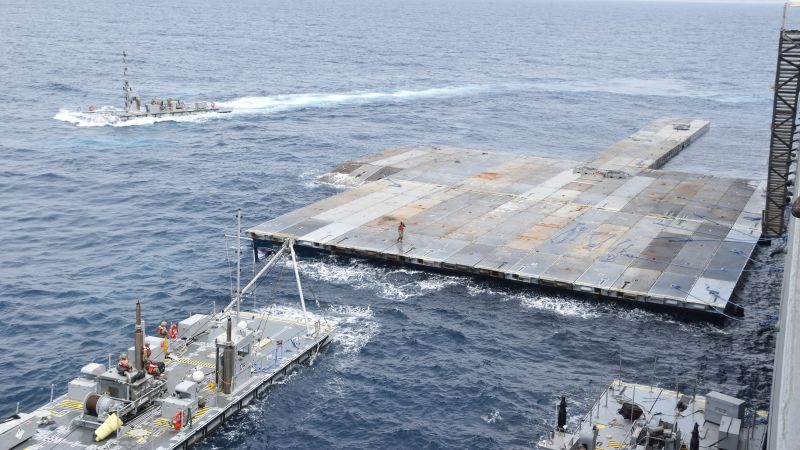
Title: US Aid to Gaza Faces Delays Due to Weather and Security Concerns
The United States is facing obstacles in delivering humanitarian aid to the Palestinians in Gaza due to heavy seas and security concerns. The US Navy cargo ship carrying the aid, which was constructed in Cyprus, has reached the coast of Gaza but cannot yet unload its cargo due to unsafe conditions for operating the floating pier and causeway system (JLOTS).
The JLOTS pier can only be safely operated when waves are less than 3 feet high and winds are below approximately 15 miles per hour. However, Israel's Marine Data Center shows that these conditions are not consistently met in the area. The US is still working to finalize plans for transporting the aid from the pier to the shore in Gaza.
Background: The US has been constructing a floating pier and causeway system (JLOTS) off Gaza's coast as part of efforts to provide humanitarian aid directly to Palestinians. The system, which cost $320 million, was built in Cyprus and is now being transported to the area. However, its operation has been delayed due to heavy seas and security concerns.
Impact: The delay in delivering the aid could exacerbate an already dire humanitarian situation in Gaza. The US had initially hoped that the JLOTS pier would help address some of the challenges faced by Palestinians in getting essential supplies into the territory. However, with no clear timeline for when it will be operational, many are left wondering if this aid will ever reach its intended recipients.
Bias: The mainstream media has reported on the US efforts to deliver humanitarian aid to Gaza with varying degrees of bias. Some sources have focused on the political implications of the situation, while others have provided more objective coverage. It is important for readers to be aware of potential biases and seek out diverse sources for a complete understanding of the issue.





